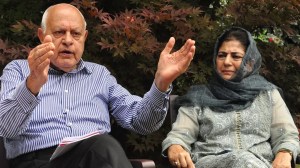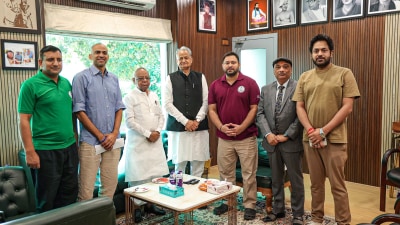Sanatan Dharma eternal duties, but untouchability can’t be tolerated: Madras HC
With Special Government Pleader C Kathiravan’s clarification that the principal had retracted the circular, Justice Seshasayee disposed of the petition.
 Observing that “undesirable practices” may “inadvertently seep in” as religious practices evolve, he said, “They are the weeds that need excision, but why annihilate the entire crop?”
Observing that “undesirable practices” may “inadvertently seep in” as religious practices evolve, he said, “They are the weeds that need excision, but why annihilate the entire crop?” Amid the political slugfest over Tamil Nadu minister Udhayanidhi Stalin’s remarks on Sanatan Dharma, the Madras High Court has said Sanatan Dharma is “a set of eternal duties” that forms the bedrock of the ancient Hindu way of life. However, untouchability, the High Court has said, “cannot be tolerated” even if it is “seen as permitted somewhere within the principles” of Sanatan Dharma.
Justice N Seshasayee made these observations in his order Friday — it was made available Saturday — while disposing of a petition filed by Hindu Munnani spokesperson T Elangovan challenging a directive by the principal of Thiru. Vi. Ka. Government Arts College in Tiruvarur that had sought views of students against Sanatan Dharma on the birth anniversary of DMK founder and former Chief Minister C N Annadurai.
Sanatan Dharma, Justice Seshasayee said, “includes duty to the nation, duty to the king, the king’s duty to his people, duty to one’s parents and gurus, care for the poor, and a whole lot of other duties”. “If the topic chosen by the impugned circular is now tested on the plane of these duties, it would then mean that all these duties are liable to be destroyed. Shouldn’t a citizen love his country? Is he not under a duty to serve his nation? Should not the parents be cared for? With genuine concern for what is going round, this court could not help pondering over it,” he said.
The order also referenced the constitutional framework concerning free speech. “Religious beliefs stem from faith, which inherently can foster irrationality. Hence, while exercising free speech on religious matters, it’s imperative not to inflict harm,” Justice Seshasayee wrote. He said it would be commendable if free speech fostered unbiased and constructive public discussions, leading society towards the vision outlined in the Constitution.
He observed that the idea that Sanatan Dharma “is all about, and only about, promoting casteism and untouchability” seems to have gained ground. “Untouchability in a country of equal citizens cannot be tolerated, and even if it is seen as permitted somewhere within the principles of ‘Sanatan Dharma’, it still cannot have a space to stay, since Article 17 of the Constitution has declared that untouchability has been abolished,” he said.
Observing that “undesirable practices” may “inadvertently seep in” as religious practices evolve, he said, “They are the weeds that need excision, but why annihilate the entire crop?”
With Special Government Pleader C Kathiravan’s clarification that the principal had retracted the circular, Justice Seshasayee disposed of the petition.
“This court still encourages the College concerned to require the students to reflect on the evils of untouchability, and how they, as citizens of this country, can contribute to its elimination. This petition accordingly stands disposed. No costs,” the order stated.







